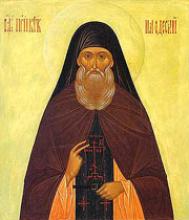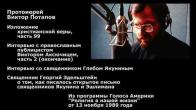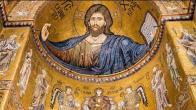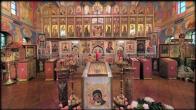You are here
Venerable St. Kuksha of Odessa
16/29 September
 Venerable St. Kuksha (in the world, Kosma Velitchko) was born on January 12, 1875 in the village of Arbuzinka Kherson region, Nikolaev Province. His parents were the pious and Christ-loving Kirill and Kharitina Velitchko.
Venerable St. Kuksha (in the world, Kosma Velitchko) was born on January 12, 1875 in the village of Arbuzinka Kherson region, Nikolaev Province. His parents were the pious and Christ-loving Kirill and Kharitina Velitchko.
In 1896, with his parents’ blessing, Kosma went to Mt. Athos, and was received as a prospective monk under obedience at the Russian Monastery of St. Panteleimon.
In 1913, he became a resident of the Kiev Caves Holy Dormition Lavra.
At his tonsure into the schema on April 8, 1931, he was given the name Kuksha, in honor of Hieromartyr Kuksha, whose relics are at the Near Caves.
On April 3, 1934, Fr. Kuksha was ordained a hierodeacon, and on May 3 of the same year, was ordained a hieromonk. After the Kiev Caves Lavra was shut down, batiushka served until 1938 in Kiev at the church on the Voskresenskaya Slobodka. It took a great deal of courage to serve as a priest in those times. In 1938, Fr. Kuksha began eight years of difficult struggle as a Confessor: as a “minister of the cult” he was sentenced to 5 years in the camps in Vilma in Molotov Region, and after that, to 3 years of exile.
Upon completing his term of incarceration in the spring of 1943, Fr. Kuksha was released, on the Feastday of Holy Great-martyr St. George the Trophy-bearer. He went into exile in a little village near the town of Kungura in Solikamsk Region. With the blessing of the bishop of Solikamsk, he often performed Divine Services in the neighboring village. People were drawn to him as they are drawn in the night to a lighted lamp.
In 1947, his exile ended, and his eight years of spiritual struggle as a Confessor came to a close. In all that time, nothing had estranged the Elder from the “love of God” (Romans 8:39), and, as a valiant warrior of Christ awarded a Confessor’s Crown, he emerged from that awful battle victorious.
In 1947 Fr. Kuksha returned to the Kiev Caves Lavra, and was received by the brethren with great joy. He took on the obedience of being responsible for the candles at the Near Caves.
However, the Lord placed upon Fr. Kuksha, who was talented and experienced in religious life, firmly imprinted with faith in Christ through a variety of trials, cleansed through bearing sorrows, deprivations and persecutions, the spiritual struggle of eldership, i.e., of serving suffering mankind by spiritually nourishing people.
The theomachist regime continually attempted to irritate and terrify the worthy one of God. He was constantly watched and persecuted. In 1951 Fr. Kuksha was transferred from Kiev to the Holy Dormition Pochaev Lavra.
The ecclesiastical authorities decided that during the period March to April 1957 he would remain in seclusion “to perfect him in living an ascetic life and scaling the heights of schema [monastic] struggle.” At the close of April 1957, during Passion Week, the Elder was transferred to the Monastery of St. John the Theologian in Kreschatik, in Chernigov Diocese.
Life in the little Monastery of St. John the Theologian was very peaceful and simple. Elder Kuksha’s arrival at the monastery had a beneficial effect on it, reviving the life of the brethren. As sheep hurry after their shepherd no matter where he might lead them, the good shepherd’s spiritual children, and then, the people of God, streamed to the peaceful monastery of the Apostle of love.
Toward the end of his life, the Elder once again had to endure a great deal of evil, sorrows, and persecution at the hands of the theomachist regime. The enemy of mankind cannot stand to see the Holy Church healthy and prosperous. Thus, at the beginning of the 1960s, the devil unleashed a new wave of persecution upon the Church. A new generation of militant atheist rulers shut down churches, monasteries and religious schools. Elder Kuksha had [a great deal of] spiritual authority, and was universally revered and loved by the people; this provoked in the atheist regime a fierce hatred toward him.
Shortly before the dissolution of the monastery, Fr. Kuksha was in the Altar of the Holy Protection Church during a Liturgy. Suddenly, a candle fell from a candlestand and onto the Table of Oblation, where it set fire to the aer, and to the chalice and paten covers. The fire was immediately put out, but Fr. Kuksha exclaimed “The enemy is driving me out of here as well.” That soon came to pass.
In 1960, the Chernovits Convent was shut down. The nuns were transferred to the men’s Monastery of St. John the Theologian in the village of Kreschatik , while the monks were moved to the Pochaev Lavra. The Prior, Archimandrite Mikhail (in schema, Mitrophan), was appointed to a parish not far from the village of Krexhatik , and Fr. Kuksha was assigned to the Holy Dormition Men’s Monastery in Odessa .
On July 19, 1960, the Elder arrived at the Holy Dormition Monastery in Odessa , where he was to spend the final four years of a painful life of spiritual struggle.
Batiushka loved God’s church, and tried to attend all of the Divine Services at the Monastery. The Elder would get up very early in the morning, would read his prayer rule, and would strive to commune every day. He loved to serve the Liturgy, especially the early Liturgy; he used to say that the early Liturgy was for spiritual strugglers, while the late Liturgy was for fasters.
Although the authorities forbade people from visiting the Holy Elder, people were not deprived of receiving spiritual nourishment from him here either.
The blessed spiritual struggler foresaw his end. Schema-nun A., one of his spiritual children, recollected, “Batiushka would sometimes say, ‘Ninety years, and Kuksha will no longer be. He will be buried quickly, quickly, they will take their little shovels and bury him.” In fact, what he said came to pass exactly so. He reposed at 2:00 AM, and at 2:00 PM the same day, a Cross was already standing over the mounded earth of his grave. He was about 90 years of age at the time of his death.”
Fearing that a funeral would draw a great flood of people, the authorities objected to having Batiushka buried at the Monastery; they demanded that he be interred at the place of his birth. However, with divine inspiration, the Monastery Prior responded, “For a monk, the monastery is his homeland, the place of his birth.” The authorities set a 2-hour time limit in which to bury him.
Elder Kuksha is among those Russian righteous ones, such as St. Seraphim of Sarov and the Elders of Optina and Glinsk, who in recent centuries have illumined the world with the light of love, patience, and compassion.
In 1995, Elder Kuksha was added to the list of Venerable Monastics included among the ranks of Saints.
Relics in cathedral - monthly calendar
| S | M | T | W | T | F | S |
|---|---|---|---|---|---|---|
|
|
|
|
1
|
2
|
3
|
4
|
|
5
|
6
|
7
|
8
|
9
|
10
|
11
|
|
12
|
13
|
14
|
15
|
16
|
17
|
18
|
|
19
|
20
|
21
|
22
|
23
|
24
|
25
|
|
26
|
27
|
28
|
29
|
30
|
31
|
|
PARISH LIFE
Address of our Cathedral
While all the materials on this site are copyrighted, you may use them freely as long as you treat them
with respect and provide attribution on the Russian Orthodox Cathedral of St.John the Baptist of Washington DC.









